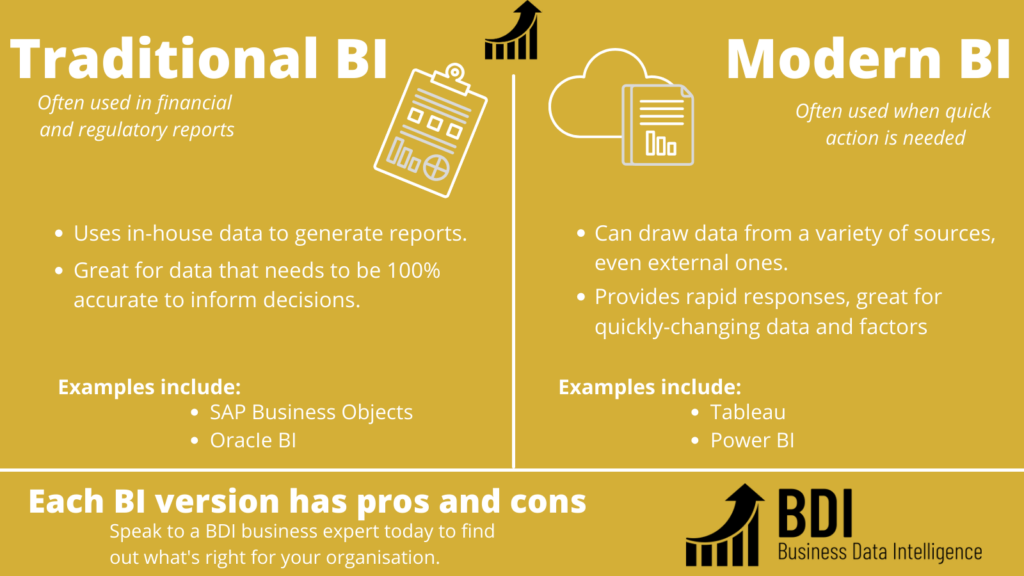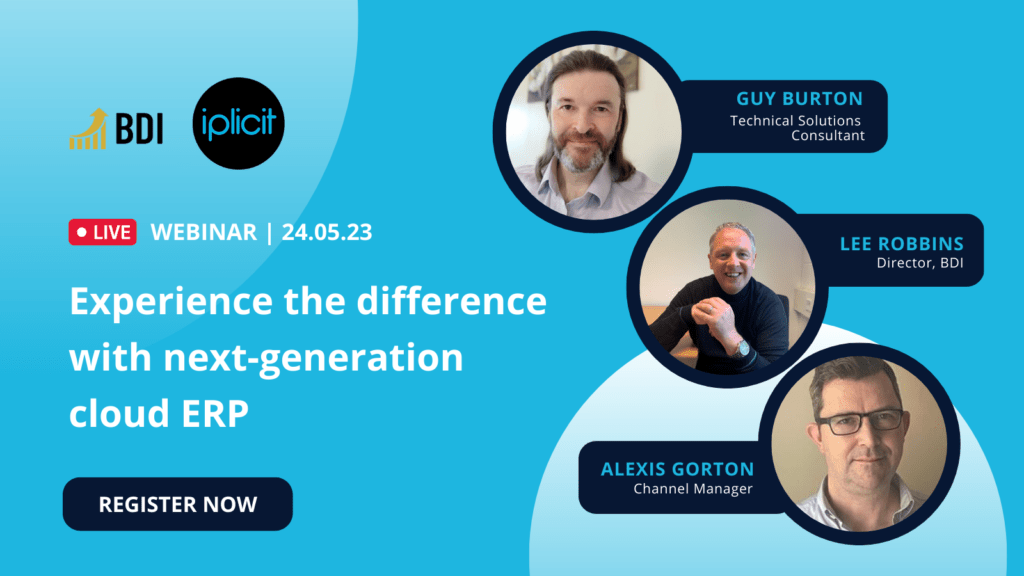The term ‘business intelligence’, or BI, refers to software and services that allow organisations to learn from their data. Whilst the name sounds intimidating, business intelligence helps organisations of any size to make practical and data-driven decisions. From big corporations to Higher Education institutions, there is a business intelligence solution that can maximise the use of data in decision-making.
BI tools provide access to data sets and generate analytical findings in the form of reports, summaries, graphs, dashboards, and charts. These reports provide a detailed overview of the state of a business or organisation and indicate any internal data trends. From here, users can apply findings to make important decisions with confidence.
It is important to note that these tools do not provide explicit guidance, but rather help interpret the data to understand trends.
Table of Contents
Join the BDI mailing list
Keep up to date with the latest events, webinars, and product launches from BDI.
Sign UpThe difference between business intelligence and business analytics
Although the two terms have similar names, business intelligence and business analytics are not the same thing.
Business intelligence data is descriptive. That is to say, it tells you what has happened to your organisation in the past to get to this point, and what is happening now. Business intelligence reporting delivers straightforward snapshots of the current situation to business managers, allowing them to monitor any changes.
On the other hand, business analytics is a predictive tool. It tells you what could happen in the future if specific factors changed.
The biggest difference between business intelligence and analytics from a user perspective is accessibility. Business analytics require data science professionals to interpret and examine information, whereas good BI can be understood by relatively non-technical end-users. In a way, BI demystifies data for employees, helping a team to use data intelligently when making decisions.
Traditional business intelligence versus modern business intelligence
Cindi Howson, former Vice President of Gartner, identified two different types of business intelligence in the 2017 Magic Quadrant report: Traditional and Modern BI.
Traditional (or classic) BI is where IT professionals use in-house data to generate reports. This often includes transactional data. In contrast, modern BI tools allow business users to interact with agile systems to analyse data more quickly. These solutions mainly focus on empowering business users with speedy insights into an organisation’s performance.
Certain types of reporting, such as financial or regulatory reports, are often completed using traditional BI. This is because the most important aspect of these reports is that they must be completely accurate. The questions asked and data sets used are standard and predictable, so this more rigorous form of business intelligence tools is required.
Alternatively, organisations use modern BI tools when business users need information about rapidly changing areas. This can include dynamics that are quickly shifting, such as market factors. In this case, fast data is required to make quick decisions, rather than 100% accurate data.

What business intelligence tools are available?
Modern, self-service BI tools are growing in popularity. These tools feature intuitive user interfaces (also known as UIs) that allow users to find their data easily. An example of this sort of tool would be a dashboard. One of the big benefits of these tools is that they can often be used without much training and onboarding; company data thus becomes accessible for various decisions.
Other important categories and features in BI software more generally include:
- Visualisations
- Reporting
- Data mining
- Extract-transform-load (ETL)
- Online analytical processing (OTLAP)
SelectHub identifies the most popular tools as being dashboards and visualisation. This is because these tools offer quick and easy-to-digest summaries of data, allowing users to quickly understand what they need to know.
Which tools are right for my organisation?
At BDI, we know that every organisation is unique and has personal needs. Our team of business experts are familiar with a variety of easy-to-implement tools and packages and are happy to discuss your organisation’s needs. We keep an open mind throughout the consultation process, working with you and your key stakeholders to make valuable and meaningful improvements to your business systems.
If you’re a SunSystems of Infor Q&A user, please contact Nick or one of our sales team for further insight. We offer Business Systems Reviews, Budgeting and Forecasting, and Data Analysis and Review services, personalised to each organisation. To find more information about these services, please visit the ‘Services’ page or get in touch with one of our team. We look forward to working with your organisation soon.
Ready to get started?
Our team of data intelligence experts are ready and waiting to work with your organisation


Recent Comments